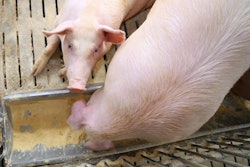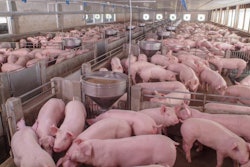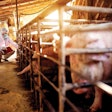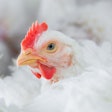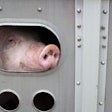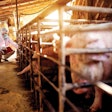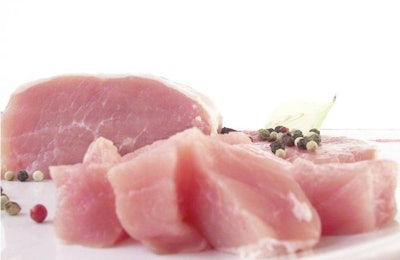
Country’s pork prices have nearly tripled approaching new year holiday
Vietnam has more than doubled its imports of pork during the first 11 months of 2019, according to the country’s Ministry of Finance, as it deals with the effects of African swine fever (ASF).
The ministry said Vietnam has imported more than 110,000 metric tons of pork so far this year, and pork prices have nearly tripled from VND35,000 (US$1.51) per kilogram early this year to VND100,000 (US$4.32) as the new year holiday – associated with high pork consumption – approaches.
Vietnam will continue to import pork as it continues to recover from the ASF outbreaks, the first of which occurred in February and has since spread to all 63 provinces, resulting in the death or culling of nearly 6 million pigs in the country. According to the Food and Agriculture Organization of the United Nations (FAO), of the 667 ASF-affected districts in 63 of Vietnam’s provinces, 412 districts (61.7%) in 56 provinces have passed 30 days after the last outbreak without recurrence.
To date, ASF has been reported in 12 Asian countries, with Indonesia the latest to confirm detection of the disease. ASF was first detected in China in August 2018 and has spread throughout Asia, Europe and Africa.
ASF affecting Vietnam’s hog feed consumption
In a report this month, Rabobank said Vietnam’s hog feed consumption would decrease by 7.9% in 2020. As a result of protein substitution, total consumption growth of poultry and aquafeed in Vietnam will be 5.4% in 2020. Overall, total animal feed consumption in Vietnam will decrease by 2.1% in 2020. Vietnam’s corn and soybean meal demand is expected to decrease by 3.4% and 1.9%, respectively, in 2020.
Vietnam’s imports of corn and soybean meal for animal feed are expected to decrease by 4.7% and 5.1%, respectively, in 2020. Imports of soybeans for animal feed production, however, are expected to increase by 6.1%, due to increasing demand from additional soybean crushing capacity.
View our continuing coverage of the African swine fever outbreak.

